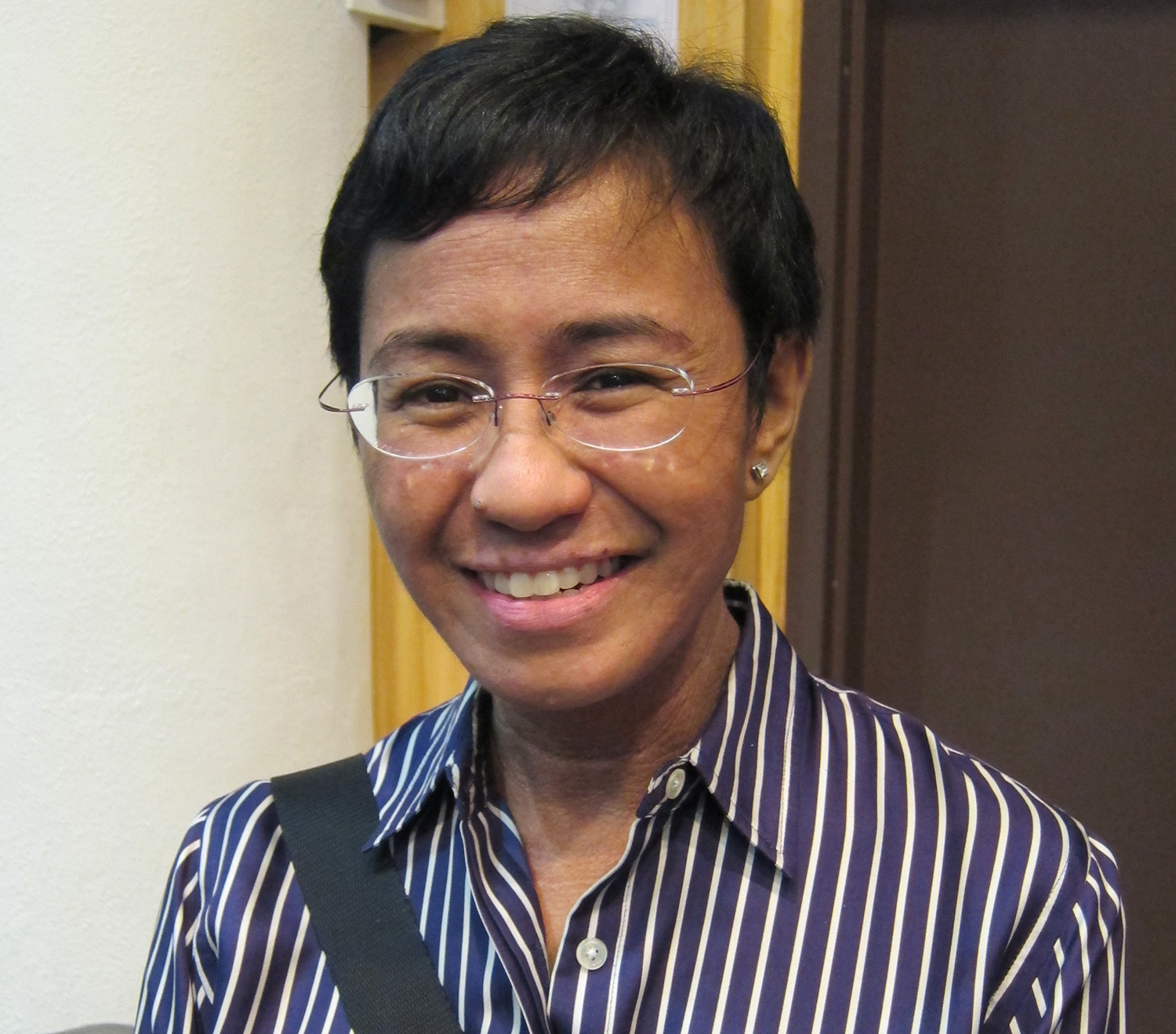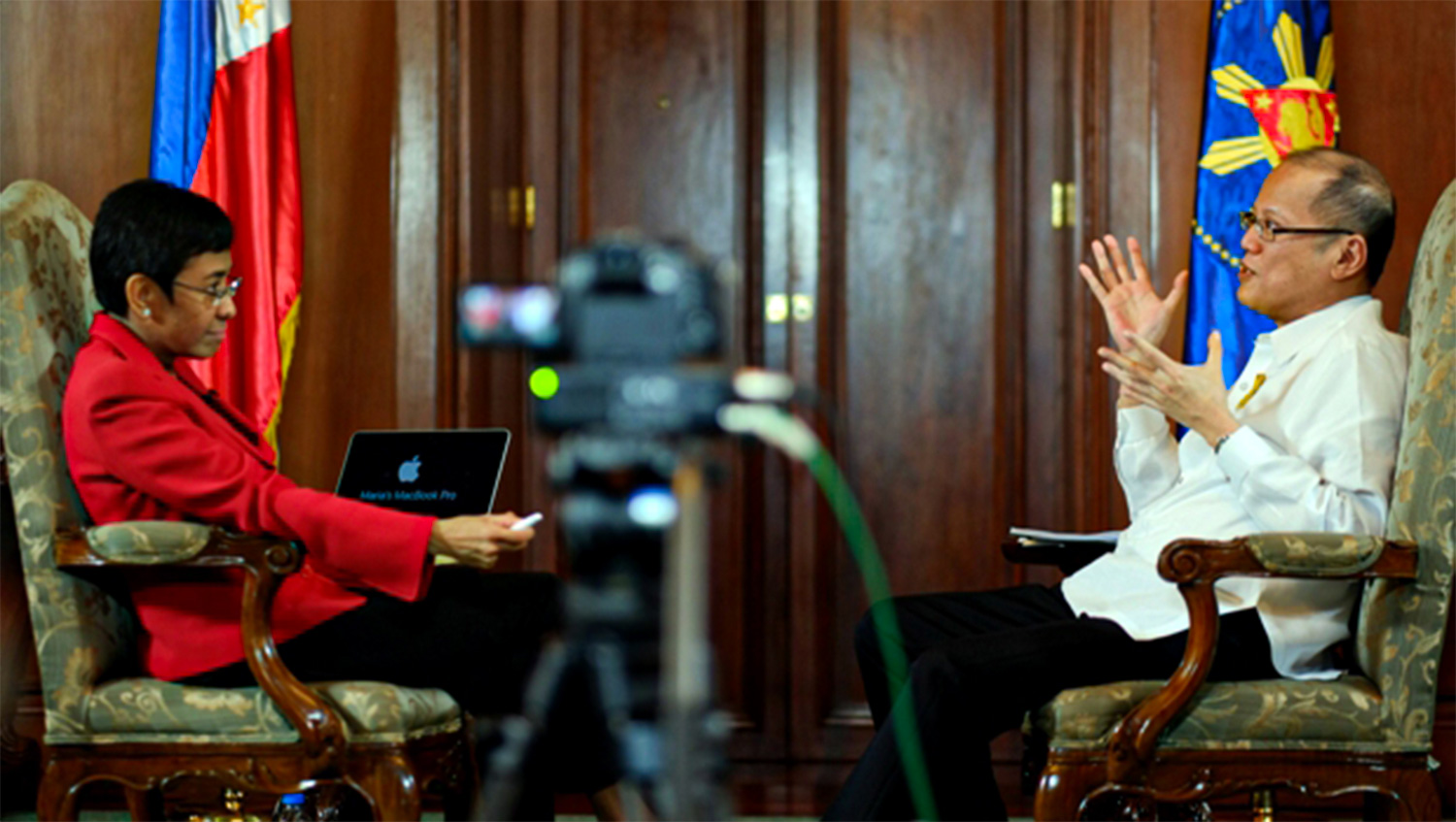Issue:
November 2021
Months before she won the Nobel Peace Prize, Maria Ressa defended a free, independent media at FCCJ event

The last journalist to win the Nobel Peace Prize was thrown into concentration camps for speaking out against Germany's militarism during the Nazi's rise to power. He died three years later from tuberculosis after being repeatedly tortured.
Carl von Ossietzky won the award in 1935 for "his burning love for freedom of thought and expression and his valuable contribution to the cause of peace." He was one of the first reporters to recognize and openly criticize the deterioration of the political system in his country.
It has taken 86 years for another journalist to win the coveted prize. In early October, Maria Ressa, co-finder of the Philippine news site Rappler, and Dmitry Muratov, co-founder and editor of the independent Russian newspaper Novaya Gazeta, were honored by the Norwegian Nobel Committee.
Ressa was praised for focusing "critical attention on the Duterte regime’s controversial, murderous anti-drug campaign". The committee said that "despite the killings and threats, Novaya Gazeta editor-in-chief Muratov has refused to abandon the newspaper’s independent policy" – six of Novaya Gazeta's journalists have been killed doing their work.
While the situations in the Philippines and Russia differ greatly, both Ressa and Muratov have consistently sought to convey the truth about their authoritarian leaders, Rodrigo Duterte and Vladimir Putin.
In summing up, the committee said: "Free, independent and fact-based journalism serves to protect against abuse of power, lies and war propaganda ... These rights are crucial prerequisites for democracy and protect against war and conflict."
To this writer, and I'm sure many colleagues at the FCCJ, the awarding of the prizes to these two courageous journalists feels like a shot in the arm for a profession that is increasingly coming under attack from a growing number of authoritarian governments, and the snake pit of social media.
The FCCJ was lucky enough to host a press conference with Ressa in June last year, just a week after a Manila court found the 2018 Times Magazine Person of the Year guilty of cyberlibel (the case was dismissed by a court in August).

The presser got off to an inauspicious start. With most people attending online due to the pandemic, the first five minutes or so of her opening statement was broadcast without sound due a technician's oversight. The unflappable Ressa (and equally cool-headed moderator, David McNeill) restarted the event, and the world could finally hear Ressa.
She calmly refuted the charges against her, and using her skills honed over two decades at CNN, talked eloquently about issues ranging from press freedom to fake news, democracy and the Duterte government.
But the bulk of her answers were devoted to the perils of social media, particularly Facebook, whose use of algorithms she said were designed to “prioritize the spread of lies laced with anger and hate over facts”.
"Technology has been the enabler of the rise of populist authoritarian style leaders like my president, she told the FCCJ. "It has also significantly altered the information ecosystem. Journalists are no longer the gatekeepers, social media platforms are.
"Facebook is the world's largest distributor of news. And when that happens, when they strip away the gatekeeping role but also abdicate responsibility, you get this ecosystem where a lie, laced with ignorant hate, spreads faster than facts.
"How far are you willing to go to protect the facts, what are you willing to sacrifice for truth? Because facts and truth, they're under attack, and a lot of that is enabled by social media. Every generation will craft their own democracy. Democracy isn't static. And if we don't protect it, we will lose it."
The major focus now for Rappler is next year's presidential election in the Philippines. The site is continuing to expose false statements and misdemeanors by the candidates. One is the son of former dictator Ferdinand Marcos, another is Duterte's former police chief, who led the early years of his drug war. And there is still a chance that the president's daughter, Sara, will seek to retain the Duterte family’s grip on power.
Ressa told the FCCJ that she had become a journalist 35 years ago, soon after the People Power revolution that deposed Marcos. At the time, she had thought that the Philippines would have a "vibrant democracy with strong institutions".
But Ressa said opposite had happened. "We're seeing the caving in of institutions," she said. "We will have to fix this in the next generation, and the sooner we get to it. The sooner we wake up and demand that these safeguards that our rights again be put in place, the better it will be."
On Duterte, she said: "We elected a president dictator. He is our duly elected president and in that I give him the respect, the office demands. But in the end, it is up to Filipinos. In the end, we get the government we deserve."
Ressa said support from overseas press organizations - the FCCJ's Freedom of the Press Committee issued statements to mark both her cyberlibel conviction and her Nobel Prize - had been invaluable. Such backing has "helped me stay out of prison," she said. "Journalists help by shining the light, so please continue."
Andy Sharp is Deputy Politics and Economics Editor at the Nikkei Asia

